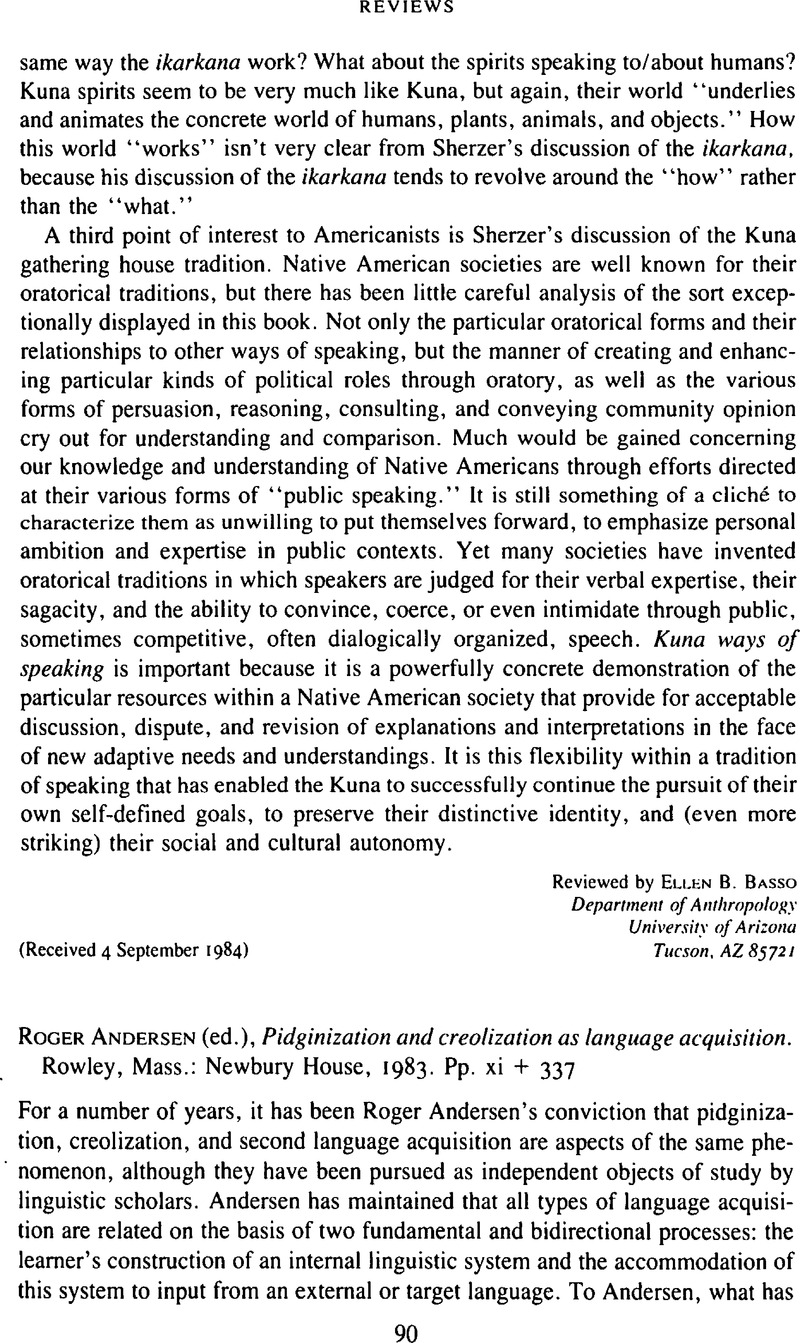No CrossRef data available.
Article contents
Roger Anderson (ed.), Pidginization and creolization as language acquisition. Rowley, Mass.: Newbury House, 1983. Pp. xi + 337
Published online by Cambridge University Press: 18 December 2008
Abstract
An abstract is not available for this content so a preview has been provided. Please use the Get access link above for information on how to access this content.

- Type
- Book Review
- Information
- Copyright
- Copyright © Cambridge University Press 1985
References
REFERENCES
Beebe, L. (1980). Sociolinguistic variation and style shifting in second language acquisition. Language Learning (30)2:433–47.CrossRefGoogle Scholar
Beebe, L., (1981). Social and situational factors affecting the communicative strategy of dialect codeswitching. International Journal of the Sociology of Language 32:139–49.Google Scholar
Beebe, L., & Zuengler, J. (1983). Accommodation theory: An explanation for style shifting in second language dialects. In Wolfson, N. & Judd, E. (eds.), Sociolinguistics and language acquisition. Rowley, Mass.: Newbury House. 195–213.Google Scholar
Hymes, D. (ed.) (1971). Pidginization and creolization of languages. Cambridge University Press.Google Scholar
Manessy, G. (1979). Expansion foncionnelle et evolution. Paper presented at the Conference on Theoretical Orientations in Creole Studies. St. Thomas,March 28–April 1.Google Scholar
Zuengler, J. (1983). Phonological aspects of input in NS–NNS interaction. Paper presented at Tenth University of Michigan Conference on Applied Linguistics: Input in Second Language Acquisition.Ann Arbor,October 28–30.Google Scholar




